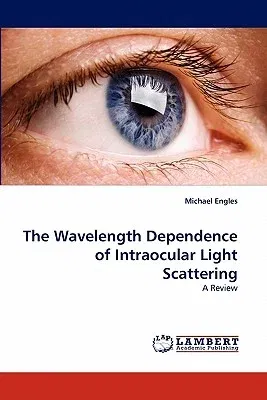Michael Engles
(Author)The Wavelength Dependence of Intraocular Light ScatteringPaperback, 30 March 2011

Qty
1
Turbo
Ships in 2 - 3 days
In Stock
Free Delivery
Cash on Delivery
15 Days
Free Returns
Secure Checkout
Print Length
84 pages
Language
English
Publisher
LAP Lambert Academic Publishing
Date Published
30 Mar 2011
ISBN-10
3844314865
ISBN-13
9783844314861
Description
Product Details
Author:
Book Format:
Paperback
Country of Origin:
US
Date Published:
30 March 2011
Dimensions:
22.86 x
15.24 x
0.51 cm
ISBN-10:
3844314865
ISBN-13:
9783844314861
Language:
English
Location:
Saarbrucken
Pages:
84
Publisher:
Weight:
136.08 gm

